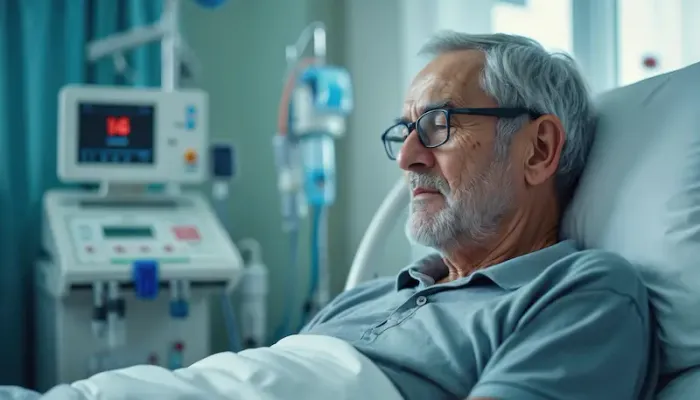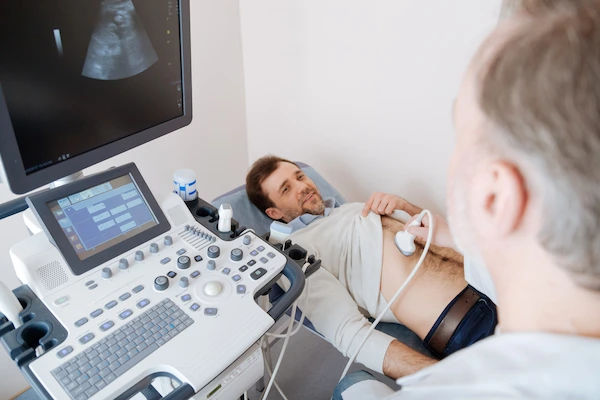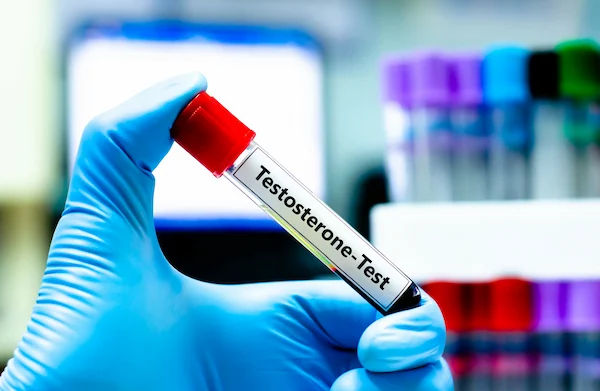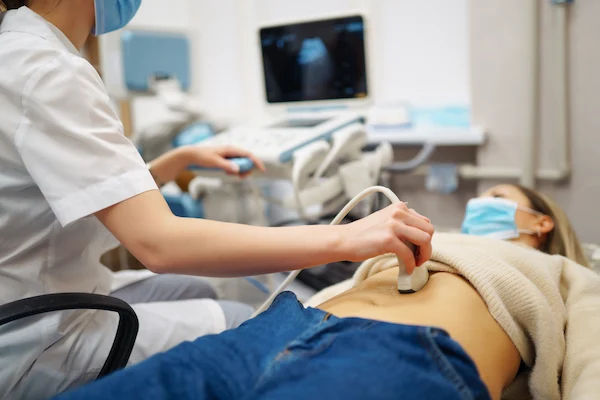Your Health Future: Why Screenings Are Your Most Important Check-Up
Know about the health screenings, why they are important, defining preventive care, concerns about health screening and common types of health screening.

Written by Dr. Md Yusuf Shareef
Reviewed by Dr. Shaik Abdul Kalam MD (Physician)
Last updated on 6th Oct, 2025

Introduction
In a world focused on treating illness, the true power of modern medicine lies in preventing it. Health screenings are the cornerstone of this proactive approach. They are not about waiting for a symptom to appear; they are about looking for early warning signs long before you feel unwell. Understanding the importance of health screenings is like having a roadmap for your long-term well-being. This guide will demystify preventive care, explaining how these simple checks can detect serious conditions like heart disease, diabetes, and cancer at their most treatable stages. We’ll walk you through the essential screenings recommended for every age group, address common fears and misconceptions, and show you how taking this small step today can lead to a healthier, longer tomorrow.
What Are Health Screenings? Defining Preventive Care
Health screenings are medical tests or physical exams performed to check for diseases or health conditions before signs or symptoms appear. The goal is simple yet profound: to find potential health issues early, when they are easier to treat. Preventive care shifts the focus from reacting to sickness to actively preserving health.
Screening vs. Diagnostic Testing: Knowing the Difference
It's crucial to distinguish between a screening and a diagnostic test. A screening is for people who appear healthy and have no symptoms. It's a broad net cast to see if there are any hidden problems. Examples include a routine mammogram or a cholesterol check during an annual physical.
A diagnostic test, on the other hand, is used to investigate a specific symptom or abnormal finding from a screening test. If a screening mammogram shows a suspicious area, a diagnostic mammogram or biopsy would be the next step to diagnose the issue. Understanding this difference helps clarify the importance of health screenings as the first line of defense, not a response to a known problem.
Consult a General Practitioner for Personalised Advice
The Lifesaving Benefits: Why You Shouldn't Skip Your Screening
The advantages of regular health check-ups extend far beyond simply "getting a clean bill of health." They provide tangible, life-altering benefits.
Early Detection: The Key to Better Outcomes
This is the most significant benefit. For many serious illnesses, early detection is synonymous with more treatment options and a higher chance of survival. For instance, when colorectal cancer is found early through a colonoscopy, the 5-year survival rate is over 90%. If it's not found until it has spread to other parts of the body, the rate drops to about 14%. Similarly, early-stage breast cancer has a 99% 5-year survival rate. These statistics powerfully illustrate that early detection of diseases through screenings can be the difference between a manageable condition and a life-threatening crisis.
Peace of Mind: Reducing Anxiety and Uncertainty
Health anxiety is a real concern. Worrying about a persistent cough or a strange ache can be mentally exhausting. Undergoing recommended screenings provides objective data. A normal result can offer immense relief and validation that your healthy habits are paying off. If a test does uncover an issue, the peace of mind comes from knowing you’ve caught it early and can take immediate, informed action. This proactive stance replaces uncertainty with control.
Cost-Effectiveness: Saving Money in the Long Run
While there may be an upfront cost, preventive health screenings are incredibly cost-effective. Treating a disease in its advanced stages is exponentially more expensive than addressing it early. Hospitalisations, complex surgeries, and long-term medications create a significant financial burden. Many insurance plans fully cover preventive screenings because they know it saves them and you money in the long term. It’s an investment that pays for itself many times over.
Your Personalised Screening Timeline: A Guide by Age and Risk
There is no one-size-fits-all schedule. Your personalised health screening plan depends on your age, sex, family history, and personal health habits.
Screenings in Your 20s and 30s: Building a Healthy Baseline
This is the time to establish a baseline for your health. Key screenings include:
Blood pressure: At least every two years.
1. Cholesterol: Starting at age 20 for those with risk factors, or by 35 for men and 45 for women without.
2. Cervical cancer (Pap smear): Starting at age 21.
3. BMI and weight: Annually.
Screenings in Your 40s and 50s: A Crucial Decade for Prevention
This is when the risk for many conditions increases.
1. Diabetes (blood glucose test): Start at age 45, or earlier if overweight with other risk factors.
2. Colorectal cancer: Begin screenings at age 45 via colonoscopy or stool-based tests.
3. Breast cancer (mammogram): Women should discuss starting annual mammograms with their doctor, typically by age 40-50.
4. Prostate cancer (PSA test): Men should discuss the risks and benefits with their doctor starting at age 50 (or 45 for high-risk groups).
Screenings for 60 and Beyond: Maintaining Health and Independence
The focus shifts to maintaining quality of life and managing chronic conditions.
1. Bone density (DEXA scan): For women at age 65 to screen for osteoporosis.
2. Abdominal Aortic Aneurysm: A one-time ultrasound screening for men aged 65-75 who have ever smoked.
3. Continued screenings: Colon, breast, and prostate cancer screenings continue based on previous results and doctor recommendations.
4. Lung cancer screening: Annual low-dose CT scan for adults 50-80 who have a significant smoking history.
The Role of Family History in Your Screening Schedule
Your family medical history is a critical piece of your personal puzzle. If a parent or sibling had heart disease, diabetes, or cancer at a young age, your doctor may recommend starting screenings earlier and having them more frequently. Always share your detailed family history with your healthcare provider.
Common Health Screenings and What to Expect
Knowing what to expect can alleviate anxiety. Here’s a brief overview of common tests.
Blood Pressure and Cholesterol Checks
These are quick, non-invasive tests. A cuff is placed on your arm for blood pressure. For cholesterol, a simple blood draw is required, which can often be done with a home collection service by Apollo24|7 for added convenience.
Cancer Screenings: Mammograms, Pap Smears, and Colonoscopies
1. Mammogram: An X-ray of the breast that involves brief compression. It can be uncomfortable, but it is very fast.
2. Pap Smear: A quick swab of the cervix during a pelvic exam to check for cervical cancer cells.
3. Colonoscopy: A procedure where a doctor uses a camera to examine the colon. It requires preparation to clean the colon beforehand, but is performed under sedation.
Bone Density Scans and Diabetes Tests
Bone Density (DEXA): A painless, low-dose X-ray that measures bone mineral density.
Diabetes (Fasting Blood Glucose or HbA1c): A blood test. The HbA1c test measures average blood sugar over three months and doesn’t require fasting. Apollo24|7 offers convenient home collection for tests like vitamin D or HbA1c.
Get Your Symptoms Assessed
Addressing Common Concerns and Barriers
It's normal to have reservations, but they shouldn't stop you from taking action.
"I Feel Fine, Why Do I Need a Test?"
This is the most common reason people skip screenings. The entire point of a screening is to find problems before you feel symptoms. Many serious conditions, like high blood pressure or early-stage cancer, are silent. Feeling fine is a good sign, but it’s not a guarantee of perfect health.
Overcoming Fear and Anxiety About Medical Tests
Fear of bad news is powerful. Remember: knowledge is power. Finding a problem early gives you the upper hand. Talk to your doctor about your fears. They can explain the procedure, the low likelihood of a serious finding, and the high probability that the test will provide reassuring peace of mind.
Navigating Cost and Insurance for Preventive Care
Under the Affordable Care Act in the U.S., most private health insurance plans must cover a set of preventive services without charging a copayment or coinsurance. Check with your insurance provider to understand your coverage. If cost is a barrier, talk to your doctor or look for community health centres that offer sliding-scale fees.
Conclusion
The path to lasting health is not paved with reactions to crises, but with consistent, proactive steps. Embracing the importance of health screenings is one of the most powerful actions you can take. It’s a commitment to yourself a decision to be an active participant in your well-being rather than a passive passenger. These tests provide the clarity needed to make informed decisions, offer the reassurance of early detection, and ultimately, grant you more healthy years to enjoy life. Your future self will thank you for the care you take today. Don't view it as a medical obligation; see it as an essential component of a vibrant, healthy life. Take control, schedule that appointment, and invest in your most valuable asset: your health.
Consult a General Practitioner for Personalised Advice
Consult a General Practitioner for Personalised Advice

Dr. Syed Ismail Ali
General Practitioner
7 Years • MBBS
Hyderabad
Apollo 24|7 Clinic, Hyderabad

Dr D M Karthik
General Practitioner
4 Years • MBBS, Fellowship in Diabetes Mellitus, Advance certificate in Diabetes Mellitus, Derma Nutrition Certification
Visakhapatnam
Apollo 24|7 Clinic - Andhra Pradesh, Visakhapatnam

Dr. M L Ezhilarasan
General Practitioner
6 Years • MBBS
Visakhapatnam
Apollo 24|7 Clinic - Andhra Pradesh, Visakhapatnam
Dr. Gaddam Manoj
General Practitioner
1 Years • MBBS
Hyderabad
Aaradhya clinic, Hyderabad
Dr. Karanam Kondalamma
General Practitioner
4 Years • MBBS
Hyderabad
KK Clinic, Hyderabad
Consult a General Practitioner for Personalised Advice

Dr. Syed Ismail Ali
General Practitioner
7 Years • MBBS
Hyderabad
Apollo 24|7 Clinic, Hyderabad

Dr D M Karthik
General Practitioner
4 Years • MBBS, Fellowship in Diabetes Mellitus, Advance certificate in Diabetes Mellitus, Derma Nutrition Certification
Visakhapatnam
Apollo 24|7 Clinic - Andhra Pradesh, Visakhapatnam

Dr. M L Ezhilarasan
General Practitioner
6 Years • MBBS
Visakhapatnam
Apollo 24|7 Clinic - Andhra Pradesh, Visakhapatnam
Dr. Gaddam Manoj
General Practitioner
1 Years • MBBS
Hyderabad
Aaradhya clinic, Hyderabad
Dr. Karanam Kondalamma
General Practitioner
4 Years • MBBS
Hyderabad
KK Clinic, Hyderabad
Frequently Asked Questions
1. How often should I get a general health check-up?
For most adults, an annual wellness visit with your primary care physician is recommended. This is a time to discuss your health, update your history, and determine which specific preventive health screenings you need based on your age and risk factors.
2. Are at-home health screening kits reliable?
Some at-home kits (e.g., for cholesterol or colon cancer) can be a convenient starting point and are generally reliable when FDA-approved. However, they are not a substitute for a doctor's evaluation. Always share your at-home results with your physician for proper interpretation and follow-up.
3. I'm healthy and have no family history of disease. Do I still need screenings?
Yes. While family history increases risk, many diseases occur in people with no known family link. General population guidelines exist for a reason—to catch common conditions that can affect anyone. Your healthy lifestyle is fantastic, but screenings are a necessary backup system.
4. What should I do if a screening test comes back abnormal?
First, don't panic. An abnormal screening result does not automatically mean you have a serious disease. It simply indicates that further investigation is needed. Your doctor will guide you through the next steps, which usually involve a more specific diagnostic test to confirm or rule out a condition.
5. Can I eat or drink before a health screening?
It depends entirely on the test. For blood tests that require fasting (like glucose or cholesterol), you will be instructed not to eat or drink anything but water for 9-12 hours beforehand. For other tests, like a blood pressure check, there are typically no restrictions. Always follow the specific preparation instructions given by your healthcare provider.







